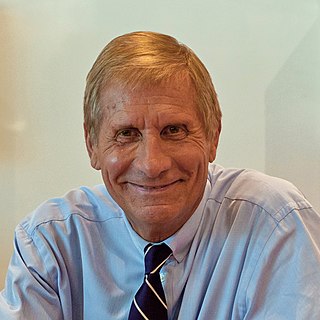
Ulrich Wickert is a German journalist. He is one of the best-known broadcasters in Germany.

Die Welt is a German national daily newspaper, published as a broadsheet by Axel Springer SE. Die Welt is the flagship newspaper of the Axel Springer publishing group. Its leading competitors are the Frankfurter Allgemeine Zeitung, the Süddeutsche Zeitung and the Frankfurter Rundschau. The modern paper takes a self-described "liberal cosmopolitan" position in editing, but it is generally considered to be conservative.

Adolf Glassbrenner was a German humorist and satirist, considered part of the Young Germany Movement.
A Pitaval is a collection of causes célèbres.
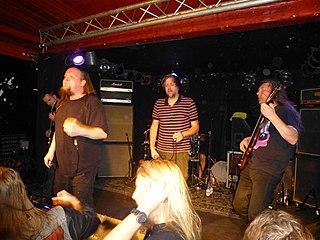
Japanische Kampfhörspiele, formed in 1998, is a grindcore band from Krefeld, Germany. Their name translates to "Japanese Combat Radio Plays." On later releases, they incorporated some death metal influences, but the band referred to their sound as "grindpunk". They played their farewell concert on January 29, 2011, at the Feierwerk in München, a recording of which formed their final release, the DVD Abschiedskonzert. A reunion followed in 2014.
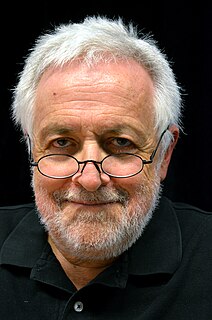
Henryk Marcin Broder is a Polish-born German journalist, author, and TV personality.

Hannelore Hoger is a German actress and director. From 1958–1961 she studied acting at the Hochschule für Musik und Theater Hamburg. She has appeared in numerous German films, television programs, and stage productions for the last five decades.

Harun Farocki was a German filmmaker, author, and lecturer in film.

Klaus Lage is a German musician from Soltau, Lower Saxony. He is known for his 1984 single "1000 und 1 Nacht (Zoom!)".
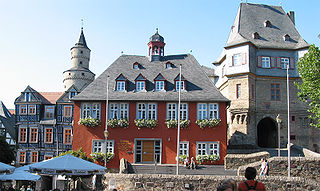
Rudolf Werner Schuster was a Tanganyika-born German physician, specialist in health informatics, and SPD politician.

Max Bernhard Weinstein was a German physicist and philosopher. He is best known as an opponent of Albert Einstein's Theory of Relativity, and for having written a broad examination of various theological theories, including extensive discussion of pandeism.
Advent songs are songs and hymns intended for Advent, the four weeks of preparation for Christmas. Topics of the time of expectation are the hope for a Messiah, prophecies, and the symbolism of light, among others. Several of the songs are part of hymnals such as the German Catholic Gotteslob (GL) and the Protestant Evangelisches Gesangbuch (EG).

Wolfgang Herrndorf was a German author, painter, and illustrator.
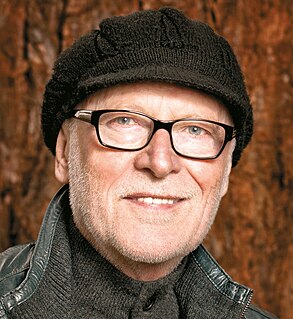
Siegfried Fietz is a German singer-songwriter, composer, music producer and sculptor. He is known for songs of the genre Neues Geistliches Lied, particularly his setting of Dietrich Bonhoeffer's poem "Von guten Mächten".

Peter Keetman was a German photographer.
Countess Tamara von Nayhauss is a German television presenter, blogger, and socialite.

Marie-Agnes Strack-Zimmermann is a German politician of the Free Democratic Party (FDP) who has been serving as a member of the Bundestag from the state of North Rhine-Westphalia since 2017.

The B3 Biennial of the Moving Image is a cross-media moving image festival in Frankfurt, Germany. It features films, media art, games, and artistic confrontations with VR, AR and MR by international artists and creative minds. The main focus of the biennial is on the international discourse on the moving image and the developments in storytelling in the digital age.
Jan Vering was a German gospel singer, newspaper editor and dramaturge at the Apollo Theater in Siegen.
This page is based on this
Wikipedia article Text is available under the
CC BY-SA 4.0 license; additional terms may apply.
Images, videos and audio are available under their respective licenses.














